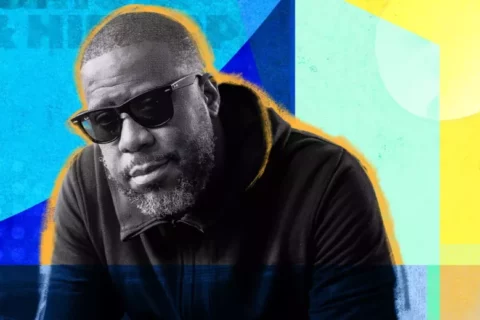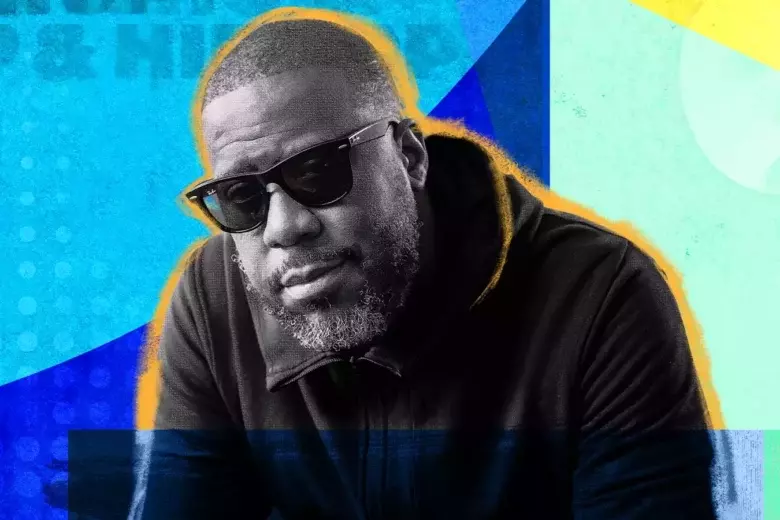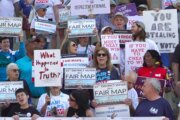The Kennedy Center kicks off its Hip Hop & … Festival this week, from March 27 to April 19.

WTOP caught up with five-time Grammy winner Robert Glasper, founding member of the Kennedy Center’s Hip Hop Culture Council, who will host “Black Radio: A Duke x Dilla Celebration” honoring Duke Ellington and J Dilla this Saturday. The concert will feature special guests De La Soul and the Black Radio Orchestra conducted by Derrick Hodge.
“Duke Ellington is such an influence on me, on the culture, on all of Black music,” Glasper told WTOP.
“J Dilla is also the same in his own right. He’s been a big influence on my generation. … He’s a producer that changed the way people actually play live music. He’s also someone that I got a chance to work with in real life before he passed. … Duke Ellington would be 125 this year and J Dilla would be 50, so I felt like, ‘hey, let’s do a Dilla-Duke tribute.'”
Born in Houston, Texas, in 1978, Glasper grew up in a musical family and attended the High School for the Performing and Visual Arts in Houston where Beyoncé was a freshman when he was a senior.
He then attended the New School for Jazz and Contemporary Music in New York City where he met his longtime collaborator, neo-soul singer Bilal, recording their first demo together in the basement of Spin Doctors drummer Aaron Comess.
“From that demo, there’s a song called ‘When Will You Call’ that [Bilal’s manager] played for Jimmy Iovine of Interscope Records; Jimmy turned it off halfway through and signed him,” Glasper said.
“The first person that we worked for was J Dilla. Bilal graciously took me with him to Detroit, that’s where I met Dilla. … I met Karriem Riggins the first day going to Dilla’s house. … Kareem’s doing the after-party for my Dilla meets Duke show.”
After touring with Erykah Badu, Common and The Roots, Glasper released his own albums with “Mood” (2002), “Canvas” (2005), “In My Element” (2007) and “Double-Booked” (2009). Still, it was “Black Radio” (2013) that won the Grammy for Best R&B Album, featuring performances by Lupe Fiasco, Erykah Badu and Lalah Hathaway.
“Especially back then, it was harder because the whole point was having everyone in the studio,” Glasper said.
“You have to deal with all of these different artists all on tour doing their own thing and you have to deal with each person’s art assistant, manager, booking agent, label, each person’s lawyer. Just going through that process with every single person trying to get them in person was much harder.”
The following year, “Black Radio 2” (2014) earned a Grammy nomination for Best R&B Album, featuring Common, Brandy, Jill Scott, Faith Evans, Norah Jones and Snoop Dogg. The album also won a Grammy for Best Traditional R&B Performance for “Jesus Children of America,” featuring Lalah Hathaway and Malcolm-Jamal Warner.
That same year, he also played keys on Kendrick Lamar’s iconic hip-hop album “To Pimp a Butterfly,” delivering a cool piano solo on “These Walls,” which won Best Rap/Sung Collaboration. Ironically, he was just warming up.
“I ended up playing like eight songs on the record,” Glasper said.
“This one particular song we recorded in [producer Terrace Martin’s] garage. … He wanted me to lay some keys to it, so I was just learning it, listening to it and warming up, just playing stuff, messing around really. … We did one take, it was fine, but the way Kendrick released the album … I was like, ‘Oh snap! They put my warmup … in the middle of the song as a solo!'”
Hollywood came calling with his Grammy-winning soundtrack for the Miles Davis biopic “Miles Ahead” (2015), starring Don Cheadle, who directed himself in the movie. He then won an Emmy with Common for “Letter to the Free” on the Ava DuVernay documentary “13th” (2016) about institutional racism in the criminal justice system.
“The Miles Davis thing came out of the blue,” Glasper said. “Don Cheadle tweeted me like, ‘Hey, I love your music,’ and I was like, ‘Oh snap,’ then we started talking on Twitter and he was like, ‘I’m doing the Miles Davis movie, have you ever scored [a film soundtrack] before?’ And I hadn’t, I lied, I totally faked it until I made it.”
Since then, Glasper has earned another Grammy nomination for Best Progressive R&B Album for “F*ck Yo Feelings” (2019), followed by two more Grammy wins for “Black Radio III” (2022), including Best R&B Album and Best R&B Song for the track “Better Than I Imagined” (feat. H.E.R. & Meshell Ndegeocello).
“I did ‘Black Radio III’ pretty much sharing files because it was during the pandemic,” Glasper said.
“There was nothing else to do, so that was probably the easiest record and the hardest record at the same time. Everybody was more accessible because no one was on tour, no one was that busy, they were home and it was just a point of who’s not depressed and who can actually make music right now? … I felt like a musical first responder.”
Most recently, he earned two more Grammy nominations for Best R&B Song and Best R&B Performance for “Back to Love” (feat. Sir & Alex Isley), a single that he released with his son, Riley.
Listen to our full conversation on the podcast below:
Get breaking news and daily headlines delivered to your email inbox by signing up here.
© 2024 WTOP. All Rights Reserved. This website is not intended for users located within the European Economic Area.







